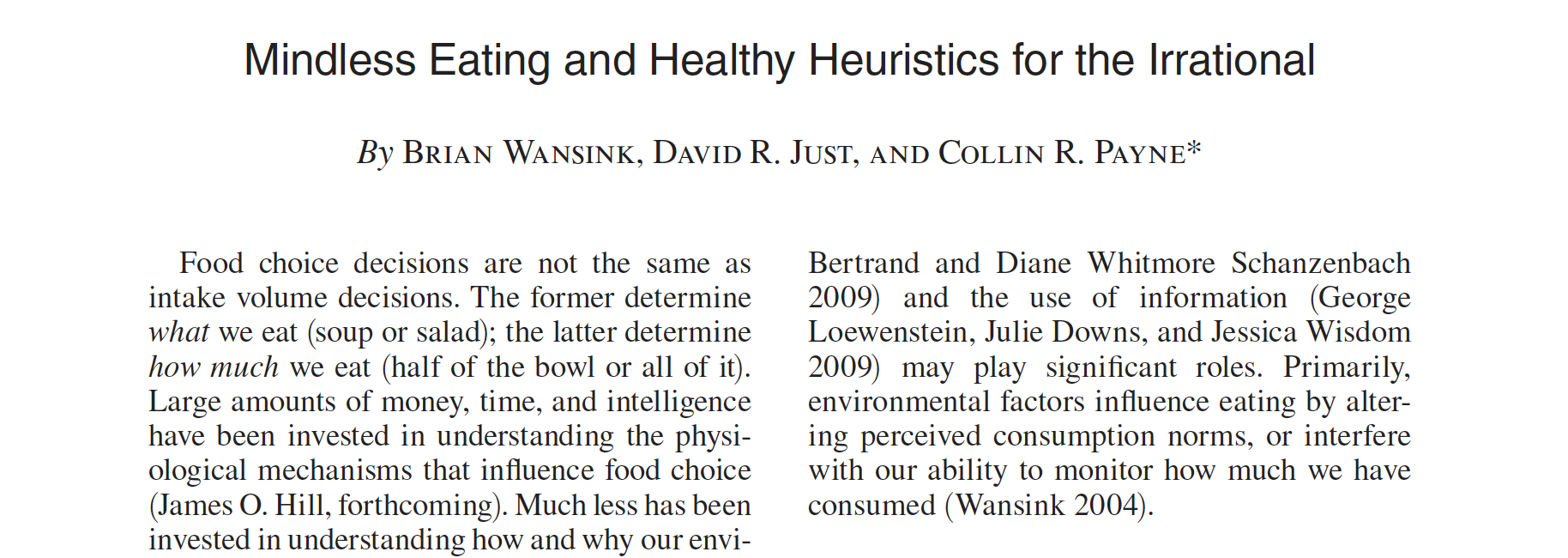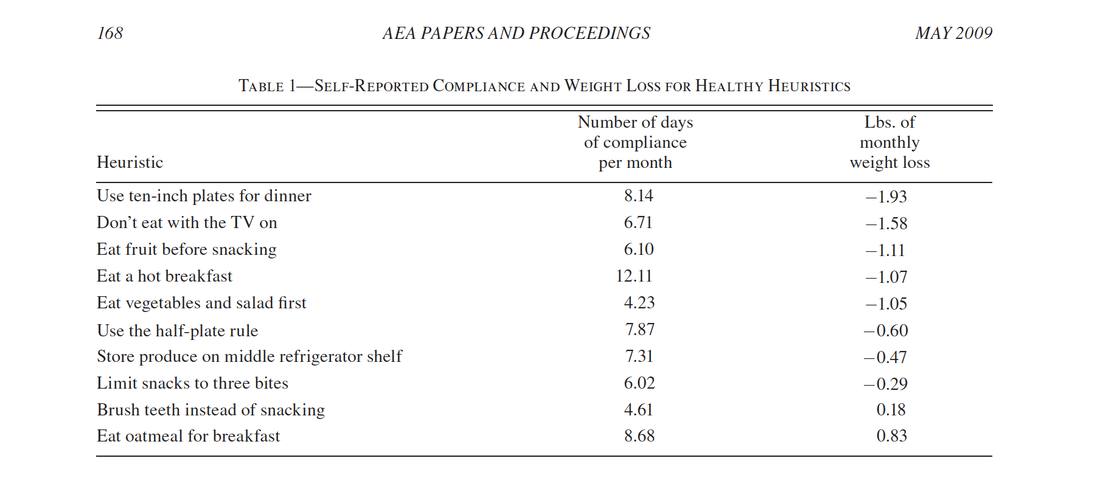|
Over the holidays it is common to be invited to gatherings or events where more food than normal is available. It is also common for us to believe that we are capable decision makers, able to determine how much we will eat and when we are full. But, is it true? And what, if anything, can be done to improve the decisions you make? In discussing these questions, I want to:
Why Do We Overeat?The bottom line is that our environment has more influence on our eating behaviors than we are willing to admit. The authors point to several studies that broadly present two issues:
Healthy TacticsGiven the power of our environment to influence how much we eat, what are some simple tactics, some heuristics that can be used to address over eating? To answer the question, 1,000 participants were recruited for a three-month study where they were randomly assigned three tactics. After three months, it was found that some of the tactics worked better than others. For instance, using a ten-inch plate resulted in nearly a 2-pound monthly weight loss, whereas eating oatmeal for breakfast resulted in gaining almost 1-pound each month. Broader ImplicationsWhile the authors focused on mindless eating, the research offers insights into the broader concept of decision-making. If the environment can have such a major influence over how much you eat, to what extent is the environment influencing other areas of your life? Second, if adopting simple tactics can help you to address over eating, what are some tactics that might help address other areas where you are seeking change? To end, I’ll ask that you help your fellow reader. Leave a comment of any tactic or “hack” that has worked for you, whether it comes to over eating or some other issue.
0 Comments
Your comment will be posted after it is approved.
Leave a Reply. |
Authors
Richard Feenstra is an educational psychologist, with a focus on judgment and decision making.
(read more) 
Bobby Hoffman is the author of "Hack Your Motivation" and a professor of educational psychology at the University of Central Florida.
(read more) Archives
April 2023
Categories |



 RSS Feed
RSS Feed
